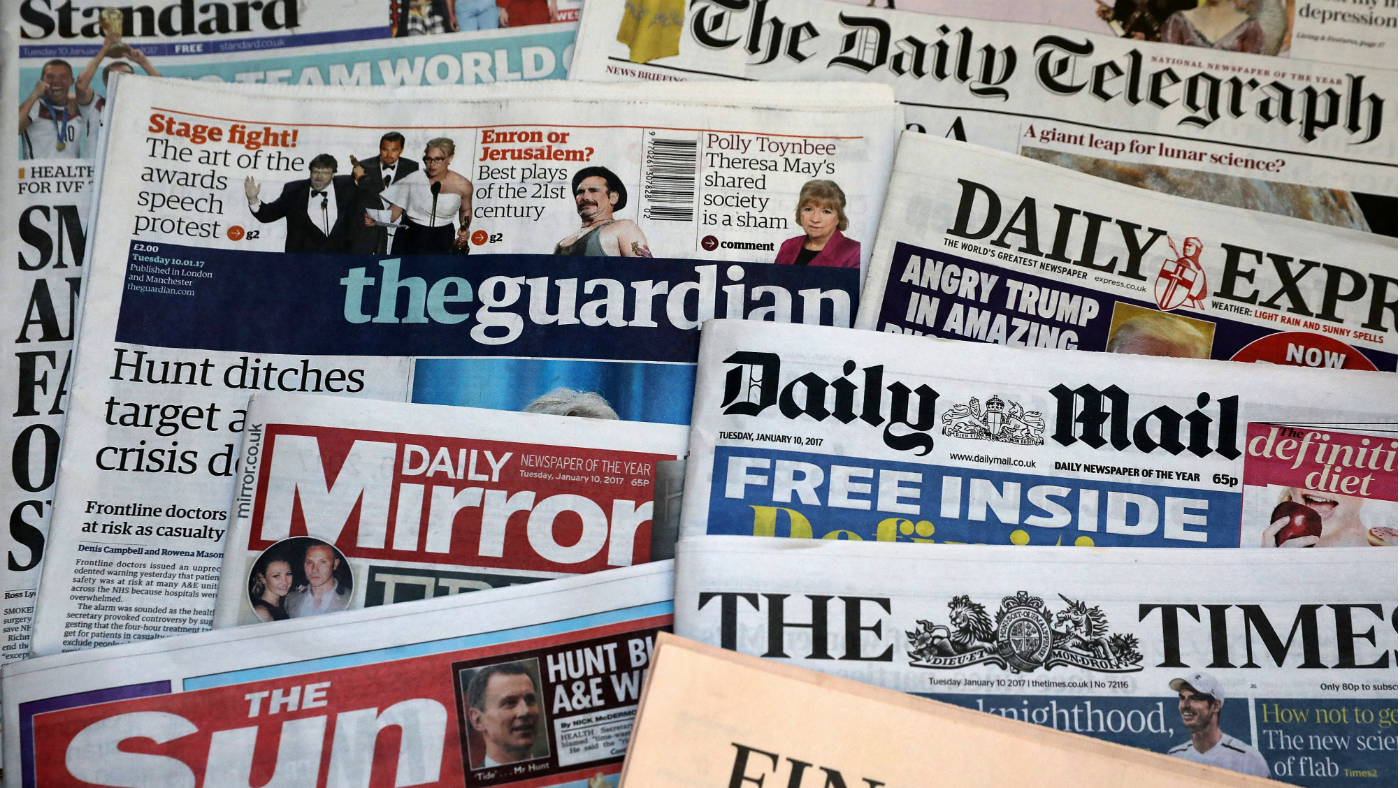Section 40: Why papers say new law compromises press freedom
Claims legislation will strong-arm British newspapers into joining government-approved regulator

A free daily email with the biggest news stories of the day – and the best features from TheWeek.com
You are now subscribed
Your newsletter sign-up was successful
Britain's press is making a final stand to block a law that would force publishers who refuse to join a government-approved regulator to pay the legal costs of lawsuits against them, even if they win.
Following a ten-week consultation, Culture Secretary Karen Bradley and her committee will shortly announce their decision on whether to enact Section 40 of the Crime and Courts Act 2013.
Press regulation campaigners and victims of press intrusion have called for the new legislation to be implemented as soon as possible, but the press is pulling out all the stops to ensure it is blocked.
The Week
Escape your echo chamber. Get the facts behind the news, plus analysis from multiple perspectives.

Sign up for The Week's Free Newsletters
From our morning news briefing to a weekly Good News Newsletter, get the best of The Week delivered directly to your inbox.
From our morning news briefing to a weekly Good News Newsletter, get the best of The Week delivered directly to your inbox.
What is Section 40?
Section 40 states that any publication not enrolled with an approved regulator must pay the full costs of a libel or privacy suit brought against them in court, regardless of whether they lose.
Crucially, though, publishers who are members of a regulator approved by the Press Regulation Panel (PRP), an independent body set up by the government in the aftermath of the Leveson inquiry, will be exempt.
Supporters, such as the campaign group Hacked Off, say the change is vital to allow ordinary people to sue publishers without fear of incurring unaffordable legal costs.
A free daily email with the biggest news stories of the day – and the best features from TheWeek.com
But The Independent warns that if the legislation goes through, those newspapers who refuse to sign up to a regulator "will be forced to think twice before writing critically about any individual or organisation – however warranted the criticism".
So far, not a single major newspaper has signed up to the only regulator currently approved by the PRP, Impress, funded by millionaire Max Mosley.
Why does the press hate Section 40?
Critics claim the new legislation would have a chilling effect on the independent journalism vital for open democracy and several newspapers have urged readers to protest, writing editorials with titles such as: "The freedom of press is under threat and time is running out - but you can help" (Daily Express) and: "After 300 years, the freedom of Britain's Press is in peril" (Daily Mail).
The Guardian's Roy Greenslade says the legislation would effectively cow publications into joining a government-approved regulator or leave themselves open to huge legal fees, a choice "clearly inimical to justice".
He adds: "If we truly believe our press should be free then surely that freedom is best illustrated by abstaining from state-approved regulation?"
Or, as Private Eye's Francis Wheelan puts it: "If this grotesque law is put into effect, we'll probably be reduced to running page after page of cat pictures."
-
 The Olympic timekeepers keeping the Games on track
The Olympic timekeepers keeping the Games on trackUnder the Radar Swiss watchmaking giant Omega has been at the finish line of every Olympic Games for nearly 100 years
-
 Will increasing tensions with Iran boil over into war?
Will increasing tensions with Iran boil over into war?Today’s Big Question President Donald Trump has recently been threatening the country
-
 Corruption: The spy sheikh and the president
Corruption: The spy sheikh and the presidentFeature Trump is at the center of another scandal